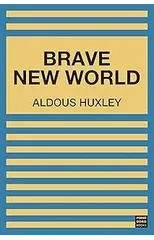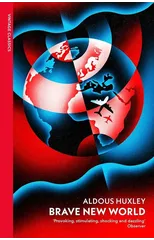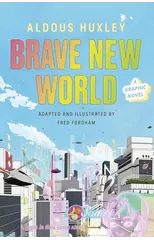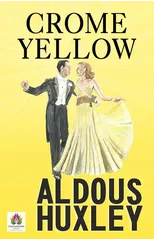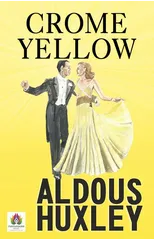Aldous Huxley (1894-1963), formado en Eton y Oxford se dio a conocer con unas primeras novelas predominantemente satíricas, pero el éxito y la atención de la crítica le llegó con Contrapunto (1928), a la que siguió Un mundo feliz (1932), quizá su obra más famosa (vendió un millón de ejemplares en un año) y sin duda la más inquietante. Pasó un tiempo escribiendo guiones cinematográficos en Hollywood, hasta que volvió a situarse en primera línea con novelas como El genio y la diosa (1945), El tiempo debe detenerse (1948), Mono y esencia (1949) y La isla (1962). Es además autor de influyentes ensayos, entre los que se cuentan La filosofía perenne (1946), Las puertas de la percepción (1954), Nueva visita a un mundo feliz (1958) o los reunidos en Si mi biblioteca ardiera esta noche (2009).
Aldous Huxley
Aldous Huxley was a British writer and philosopher known for his dystopian novel "Brave New World," published in 1932. His works often explored themes of technology, society, and the human condition. Huxley's writing style was characterized by his use of satire and wit, as well as his keen observations of society. He was a prominent figure in the literary genre of dystopian fiction, influencing writers such as George Orwell and Margaret Atwood. In addition to "Brave New World," Huxley's other notable works include "Point Counter Point" and "The Doors of Perception." His contributions to literature continue to be celebrated for their thought-provoking commentary on the complexities of human existence.

